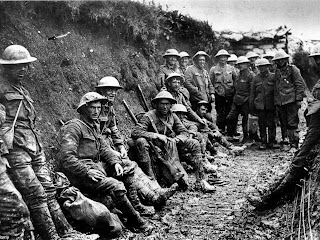Blogbook -- The Language Race War in the Literacy Classroom

Entry 26 Whether we like it or not, whether we want to admit it or not, we are in a language race war. I know, that sounds awful, but I don’t know how else to put it. The way we use our language standards in literacy classrooms is one front -- a very important front -- in that language race war that we’ve been fighting for at least 150 years. This becomes most obvious when students of color are in large numbers in schools and colleges. When this happens, perceptions of falling or low literacy standards among students begin to circulate. One way to see this war is in the rising number of so-called “remedial” students. In gentler circles, we refer to these students as “underprepared.” But we might ask ourselves what is the racialized nature of preparedness for our schools and colleges? Knowing our histories of schooling should tell you the answer: The nature of preparedness for school is gauged by a student’s proximity to and experience with Habits of White language (HOWL)....

